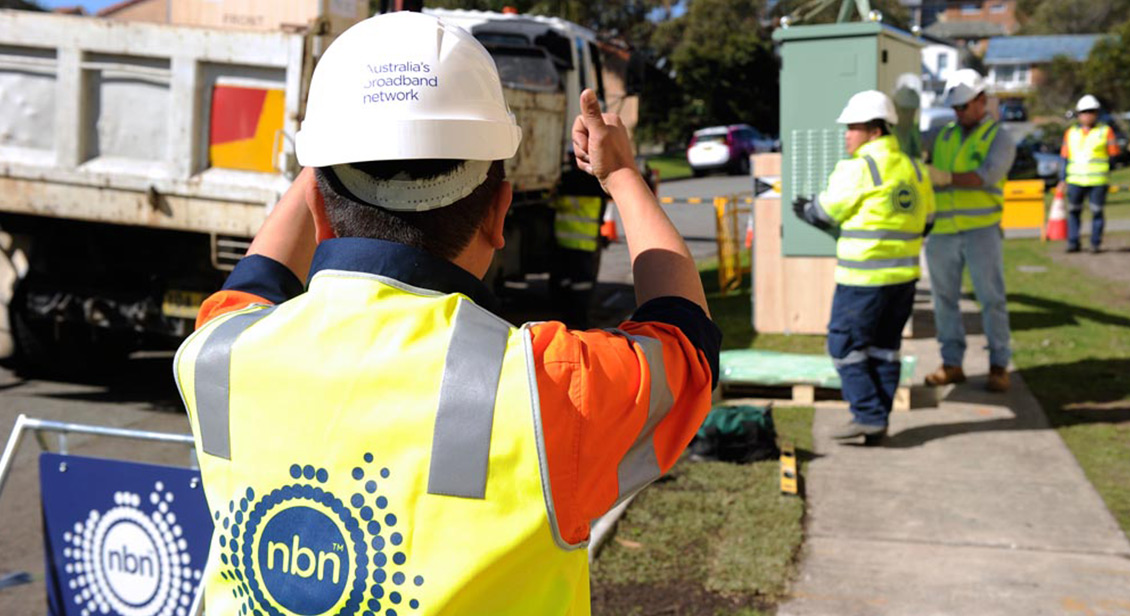General

12 things you need to know about the nbn
It’s been around 10 years since Australians first heard of the national broadband network, or as it’s officially known, the ’nbn™ access network’. Since then, there have been many moving parts, acronyms and tech jargon, so you would be forgiven for wanting to stick your head in the sand. But as tempting as that may be, we thought a guide on the things you need to know about the nbn access network might be more useful.
The rollout of the nbn is due to be completed by June 2020, so while there are millions of Australians already connected, there are still many more to go. So for those of us who don’t know our FTTPs from our FTTNs, let’s take a look at some of the common questions that come up whenever talk turns towards connecting to the nbn, like ‘do I really have to switch over?’, ‘how will I know when to connect?’, and ‘what questions should I ask my telecommunications provider?’.

1. Let’s start from the beginning. Who is NBN Co?
NBN Co is the government-owned company building and maintaining the technology that makes up the nbn access network, which we’ll refer to as the nbn from here on in. They’re a wholesaler, meaning they supply the broadband services to telco companies like Telstra, Optus, TPG and so on. They don’t sell phone and internet services direct to the public, so if you ever receive a call from somebody claiming to be from NBN Co trying to sell you a new plan or equipment, it’s a scam. But more on that later.
NBN Co does not sell phone and internet services direct to the public.
2. Do I have to connect to the nbn?
For the vast majority of Australians, the answer is yes. The old phone and internet copper network will be shutting down, so you’ll need to connect to the nbn in order to have a working phone and internet service. It’s not an automatic switch over either, so you’ll need to take action when the time comes.
It’s not an automatic switch over so you’ll need to take action when the time comes.
In some regional and remote areas there may be no disconnection date. This means you have the choice to keep your phone and internet services as they are or switch over to the available nbn technology in your area - most likely to be the nbn Sky Muster satellite or Fixed Wireless technologies. These connections give you the option to keep your existing copper phone line for emergencies in case you don’t receive good mobile coverage. Do your homework to see whether you’ll benefit from making the switch.
3. How will I know when to connect to the nbn?
NBN Co will send you a letter or postcard by mail to let you know when the nbn will become available in your area. You may also start to see marketing material from telco providers around the time the nbn is switched on, serving as a reminder to start shopping for a new nbn plan.
If you haven’t received anything in the post as yet, you can contact your telco provider or check your home (or business) address on the nbn website. You’ll find information on there like the type of connection planned for your home, what stage it’s at, the disconnection date if it’s looming, and next steps to take.
4. The nbn is available in my area. Now what?
It’s time to speak to a telco provider about a new nbn plan. Also, consider the services and devices in your house that are connected to the current network, such as medical alarms, back-to-base house alarms, your modem, and so on. You’ll need to check with the manufacturer or telco provider whether they will work over the nbn.
In most cases, you should have 18 months to connect to the nbn from the time your area is declared ‘ready to connect’.
5. Do I have to stay with my current telco provider?
No. You can change providers so take the opportunity to shop around to find a deal that works for you. The telcos don’t own the nbn access network, so you can compare their plans on things like cost (including additional installation, modem and connection fees, if any), contract options (lock-in/no lock-in), speed, data and customer satisfaction.
Check with your current provider first if there are any disconnection or early termination fees if you are still in contract.
6. What type of nbn plan should I look for?
Start with your current telco bill. How much are you spending a month and what does it include? How much data do you currently use? Are you paying for things you don’t use?
Speed and data tend to be the biggest clinchers, but before you buckle and go for the fastest and largest plan, think about how you use the internet. If it’s to check emails, read the news and do general browsing, a smaller plan will work just fine. However if you rely on video calling apps to keep in touch with family and friends, are a Netflix or Stan addict, work or volunteer from home, or listen to music online, the larger plans may be more suitable.
You can compare nbn providers and their plans with comparison sites such as WhistleOut, Canstar Blue and Finder.
7. What questions should I ask a telco provider?
Whether you stay with your current telco provider or shop around for a new plan, there are a few questions worth asking so you’re clear on total costs and compatibility, like:
- Do you charge a connection and installation fee? (can they be waived?)
- If you’re speaking to your current telco provider: are there any early termination or disconnection fees if I switch plans or providers?
- How long will it take to get connected?
- Will my modem work with the nbn?
- Will my home phone work over the nbn?
- Will my services and devices work over the nbn (think printer, fax, medical alert device, security camera and so on)?
- If you’re entitled to them, do you offer any pensioner or seniors discounts?
8. Can I keep my home phone number?
Yes. If you decide to change telco providers, make sure you let them know you would like to keep your existing telephone number.
9. Will my nbn home phone service work in a power blackout?
The nbn technology needs mains electricity to operate, so any equipment connected via the nbn won’t work during a power failure. That means you can’t make or receive calls from your home phone, including calls to Emergency (000) services. So, play it safe and keep a charged mobile phone handy as back up.
10. I’ve got a medical alarm. Will it work over the nbn?
Medical alarms that rely on the existing network may not be compatible with the nbn, so there are a few steps you need to take to help keep your medical alarm working. Leave yourself plenty of time to do this so you’re not left without your alarm.
- Register your alarm with nbn by calling 1800 227 300 or visiting nbn.com.au/medicalregister.
- Call your alarm provider for advice and to check whether your alarm will work over the nbn.
- Tell your telco provider you need priority assistance service levels (not all providers offer it, so be sure to ask).
11. I don’t need a home phone, can I just pay for the internet?
You have the option to go for a telephone only, internet only or combined telephone and internet service. Before you disconnect your home phone or internet though, ask yourself whether you need a backup in case your mobile phone is not available or not working.
12. A word on scams
Tricksters have jumped on the bandwagon and thought up some nifty ways to get you to part with your money. They get in touch and pretend to be from NBN Co or a telco provider and want to fix or sell you something. Whatever the story, the same rules apply:
- Never give an unsolicited caller remote access to your computer. Scammers will try to tell you that your computer or internet connection has been hacked and they can help. Simply hang up or ignore the pop-up messages when you see them. Legitimate organisations expect you to call them when there’s a problem with your computer or internet.
- Remember NBN Co is a wholesale provider so they will not get in touch with you to sell you a plan or equipment.
- Do not provide any unsolicited callers or door knockers with your credit card or banking details.
- If you’re unsure about an email, text or call you’ve received, contact the company the person claims to be from by doing a Google search for their phone number. Don’t use the contact details provided. If it’s a scam, it should come up in the search results.
Legitimate organisations expect you to call them when there’s a problem with your computer or internet.
Remember, if something doesn’t sound or feel right, it’s perfectly ok to end the conversation. You can go for high drama and simply slam the phone down, or say something as simple as “Thank you, but I’m hanging up now.
If you have provided remote access to your computer or provided your financial details to a scammer, contact IDCARE for advice on 1300 432 27. Contact your bank immediately to see whether you can reverse or stop any further payments and report the scam on Scamwatch so they can raise awareness in the community.
Want to know more?
If you want to find out more about switching over to the nbn, visit the nbn website or have a chat to your telco provider. nbn also pops up at shopping centres, community centres and festivals across the country so you can speak face-to-face with a representative. Take a look at the nbn events page to see if they’re visiting a location near you.